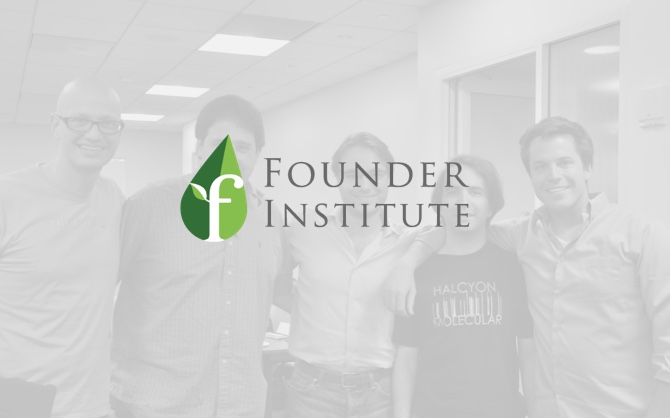
Startup ecosystems can be fragmented, competitive, and hidden to newcomers, which is detrimental for local startups and community growth. The Startup Ecosystem Canvas seeks to provide local entrepreneurs with a clear list of resources for every stage of their startup journey, and outline a basic framework for communities to map their ecosystem.
With applications for the Buenos Aires Founder Institute coming to a close, we are excited to release the Buenos Aires Startup Ecosystem Canvas, which is currently in Draft v3 below! It was developed by the Buenos Aires Founder Institute and local leaders Ariel Canossa, Ivan Saubidet, and Luis Cuezzo.
This is just a DRAFT, and more input is needed, so please leave your comments on this collaborative Google document to help us complete the list. There are definitely omissions on this current version.
Are you looking to build a startup in Buenos Aires? Then apply to the Buenos Aires Founder Institute today!

We've included a text version of the infographic, below, for ease of searching!
Startup Stages
There is no one right way to build a technology company, but for the sake of simplicity we have outlined a basic, common, sequential framework.
1. Idea Stage
This is where new entrepreneurs get inspired, learn best practices, develop skills, validate ideas, and begin to build their team and product.
A. Inspire
- Startup Media: Centralized local information, listings, and news. (i.e. startup blogs/ publications/ lists/ FB groups/ newsletters, Startup Digest)
- Inspirational Events: Open, inclusive, beginner startup events (i.e. Startup Weekend, idea fairs, and inspirational meetups)
B. Educate
- Best Practices: Beginner knowledge-sharing events. (i.e. beginner events that serve to educate more than inspire, like 1 Million Cups, Startup Grind, Startup Founder 101, etc).
- Training & Feedback: Skill & Idea development. (Ex. bootcamps and comprehensive training programs, like Founder Institute, General Assembly, Lean Startup Machine, code camps, etc)
C. Validate
- Team Formation: Resources for teaming up. (i.e. events or other resources that facilitate early-stage recruitment and cofounder matching)
- Build First Product: Hackathons & resources to build. (i.e. hackathons and other builder-focused events and resources)
- 1er Hackathon: Tecnologia para la Inclusion
- Angelhack Buenos Aires
- AngularJS Buenos Aires
- Arquitectura de Software Buenos Aires
- BA Node.js
- Baires Frontend UX
- Big Data Developers
- Buenos Aires Django Meetup
- Buenos Aires Python Meetup
- Buenos Aires Web Development
- Media Party Hackathon
- Meetup.js
- MercadoLibre Hackathon
- Ruby Buenos Aires
- TADHack Global Buenos Aires
2. Launch Stage
In this stage, entrepreneurs establish and formalize the company, develop the product, get feedback from customers, and prepare for the next step.
A. Start
- Establish: Law firms & banks for startups
- ASEA
- Alfaro Abogados
- BSCP Abogados
- Banco Ciudad
- Banco Patagonia
- Banco Provincia
- Banco Santander Rio
- Corporate IP Abogados
- Cremades & Calvo-Sotelo Abogados
- Estudio Juridico Viau & Petersen Abogados
- Gonzalez Frea & Asociados
- Kaplan Abogados
- Kier Joffe
- Limodio Abogados
- Morando Law
- Raskovsky y Asociados
- StartLegalUp
- Workspace: Co-working and flexible workspaces (note: “official” office space goes in 3.1.a. Infrastructure)
B. Develop
- Formalize: Accounting, development and HR for early-stage startups.
- Prepare for Seed: Incubators and advanced mentorship. (i.e. advanced knowledge sharing, later stage events and resources for startup TEAMS)
C. Launch
- Seed Accelerators: Seed funding mentor programs (Techstars-style programs that provide funding)
- Pitch & Demo: Show local startups for investment (i.e. demo days for companies seeking seed investment)
3. Growth Stage
Here, a startup proves their utility, receives recognition, and scales up. This usually requires funding, angels, VCs, and ways to connect them to startups.
A. Recognition
- Investor Networking: Connect professional investors with founders. (i.e. events or groups that facilitate connections with professional investors)
- Major Media: Mainstream local business press. (i.e. major local or regional publications that frequently champion local businesses)
B. Funding
- Angels / Micro-VCs: Seed-stage investors
- Adrian Herzkovich
- Alec Oxenford
- Alejandro Cavallero
- Andres Destefanis
- Antonio Peña
- Ariel Muslera
- Arthur Madrid
- Arturo Torres
- Damian Voltes
- Daniel Nofal
- Diego Steverlynck
- Federico Jack
- Gabriela Ruggeri
- Ignacio Carcavallo
- Juan Francisco Di Nucci
- Juan Lopez Salaberry
- Mariano Suarez Battan
- Marta Cruz
- Mateo Marietti
- Matias Mosse
- Noel Poler
- Pato Jutard
- Santiago Bilinkis
- Sebastian Ortega
- Venture Capitalists: Series A and beyond
C. Growth
- Infrastructure: Office space, HR, local business insurance. (i.e. office space/ HR/ insurance providers for capital-rich companies to grow and scale)
- Expansion: Growth accelerators/consultants. (i.e. programs and business consultants for capital-rich companies to grow and scale)
4. Success Stories
Successful homegrown companies that have raised significant institutional funding, employ a large workforce, or have achieved liquidity.
- Acamica
- BrandTrack
- Clippate
- EntrenaYa
- Escapando.com
- Fnbox
- Globant
- IncluyeMe
- Intiza
- Mango
- MercadoLibre
- La Musiquita
- Properati
- RecargaPay
- Ropanroll
- SocialTools.me
- Sonico
- The Other Guys
- Tienda Nube
- Zolvers
Supporters
To facilitate the steps, every ecosystem needs strong supporters.
1. Evangelists
Successful local founders who lead the ecosystem & frequently mentor newbies. (i.e. Local leaders who have taken a leadership position, speak at a lot of startup events, mentor all the programs, etc)
- Alejandro Pestchanker
- Cheryl Quirion
- Cristian Bietti
- Diego Da Col
- Diego Noriega
- Ezequiel Lollini
- Federico Ast
- Fernando Gonzalez del Solar
- Ignacio Peña
- Jonathan Viar
- Jorge De Bernardo
- Jose Ignacio S. Galindo
- Jose Medina
- Josefina Crescia
- Laura Perez Vanmorlegan
- Lisa Besserman
- Martin Frankel
- Martin Virdis
- Martin Vivas
- Matias Scelso
- Nicolas Maiztegui
- Ricardo Vaca Narvaja
- Sebastien Yanni
2. Government
Public organizations that facilitate local economic development
- Academia BA Emprende
- Buenos Aires Ciudad
- Invertir en Buenos Aires
- Ministerio de Ciencia, Tecnologia e Innovacion Productiva
- Ministerio de la Produccion, Ciencia y Tecnologia
3. Talent
Major local business or tech universities and employers that attract and retain local talent.
- Local Universities (universities with prominent technical or business programs)
- Local Employers (Major technical employers, like Microsoft or Google or large local companies, with large local offices)
Learn more about the Startup Ecosystem Canvas here, and leave us your thoughts on the Buenos Aires Canvas on this collaborative Google document (This is just a DRAFT, and more input is needed!)
Are you looking to build a startup in Buenos Aires? Then apply to the Buenos Aires Founder Institute today



